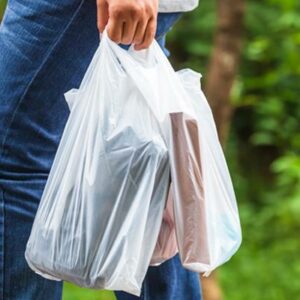The Easttown Township Board of Supervisors voted 5-0 to ban single-use plastic carry-out bags at their bi-weekly meeting Monday night.
The township released a statement beforehand on the issue saying, “The use of single-use plastic bags has severe environmental impacts, including entering local waterways, causing harm to wildlife and littering the environment, becoming stuck in or upon natural resources and public property, and blocking storm drains.”
According to the ordinance draft, numerous commercial establishments within the township provide single-use plastic bags to their customers.
The taxpayers of Easttown already pay the costs related to the cleanup of single-use plastic bags from the roadways, trees, sewers, waters, and parks within the township. From an overall environmental and economic perspective, the best alternative to address this situation is to ban single-use plastic carry-out bags, the supervisors said in their statement.
“I think this motion is a great start for our community to address this issue and will directly benefit our residents,” Supervisor Betsy Fadem said.
The law will go into effect on Jan. 1, 2023, at which time no commercial establishment will be allowed to provide any customer with a single-use plastic bag. Establishments that don’t comply after an initial written warning notice will also be liable for a violation.
The measure does allow businesses to provide a customer with a bag that complies with the ordinance at the point of sale. The store must charge not less than 15 cents for those bags provided to the customers.
“I agree with my fellow supervisors that this ordinance is a good sign of progress for our township to be cleaner and more environmentally friendly,” Supervisors Chair Beth D’Antonio said.
One woman objected to the move.
“I’m not supportive of the ban because I’m skeptical about whether paper bags are a better solution than plastic bags. I also wonder about the sanitation of those reusable bags that customers bring and how often they are cleaned after each use,” she said.
Board members also said that this plastic bag ban would conserve resources and reduce greenhouse gas emissions, as well as waste, litter, and water pollution while improving the quality of life for the township residents and visitors.
However, the data are clear that plastic shopping bags have a smaller carbon footprint than the alternatives. Environmental reporter John Tierney rejects the claim that “single-use plastic bags are the worst environmental choice at the supermarket. Wrong: they’re the best choice.”
And other environmentalists say plastics help the environment by reducing the harvest of similar renewable resources from wildlife and the environment in general. They point out the problem is actually litter, not plastic.
Several other Delaware Valley municipalities have also imposed plastic bag bans, including Philadelphia, West Chester, and Narberth.
However, one downside of the anti-plastic push is that it will put jobs throughout the Commonwealth at risk.
Pennsylvania has approximately 37,221 plastic-related jobs, including 6,931 in the Delaware Valley. In 2019, plastic product manufacturing generated $11.5 billion in economic output and paid $2.1 billion in employee compensation per year.
Please follow DVJournal on social media: Twitter@DVJournal or Facebook.com/DelawareValleyJournal

